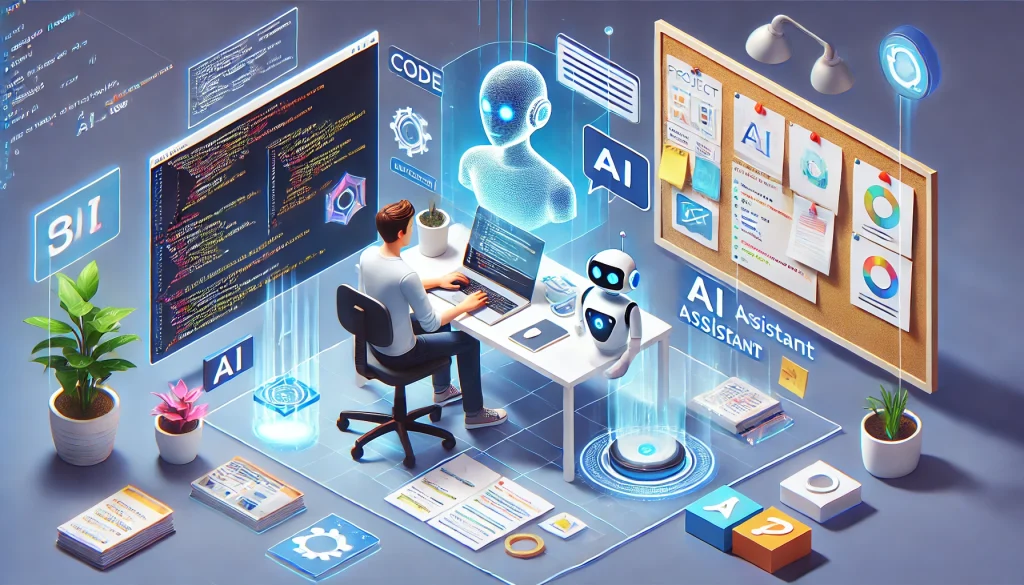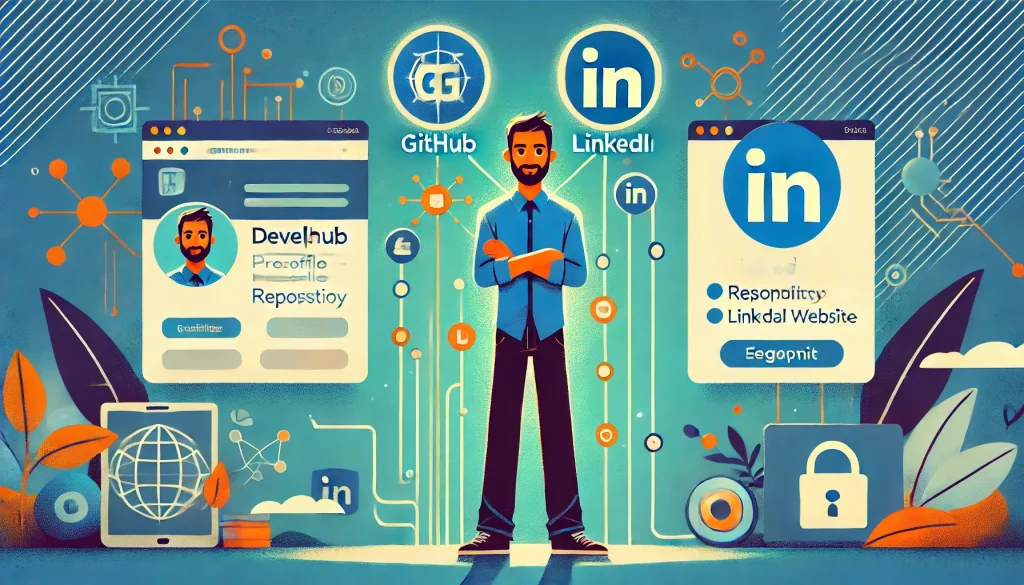Introduction
The tech sector has changed dramatically in recent years, fueled by advances in AI, cloud computing, and remote collaboration. As we move deeper into 2025, the programming landscape requires new mindsets and updated skill sets. Whether you’re a coding newcomer or a career-changer, now is a prime time to jump into software development—if you follow the right roadmap.
In this guide, you’ll learn:
- Which programming languages and frameworks matter most in 2025.
- Where AI fits into modern coding workflows.
- How to plan an effective learning journey.
- The importance of soft skills and personal branding.
By the end, you’ll know exactly what to study, which resources to use, and how to position yourself for a successful developer career in this rapidly evolving field.

1. The 2025 Tech Landscape: What’s Different?
1.1 Rise of AI-Enhanced Coding
Artificial intelligence is making waves in every tech domain, including software development. Tools like AI code assistants and machine learning–driven DevOps pipelines have become standard in many companies. Coders need to adapt, learning not only how to write efficient code but also how to collaborate with AI for testing, debugging, or code generation.
1.2 Remote and Hybrid Work
Thanks to mature communication tools and global connectivity, remote work continues to thrive. However, distributed teams rely heavily on efficient asynchronous communication. In 2025, developers must be adept at handling tools like Slack, Notion, or Jira. They also need solid time-management skills to balance flexible schedules across different time zones.
1.3 Emerging Tech: Web3, Edge AI, AR/VR
Areas like Web3, Edge AI, and AR/VR continue to attract investments and talent. While not every developer must specialize in these cutting-edge fields, having a basic understanding helps you stay adaptable. If you’re drawn to innovation, keep an eye on these evolving domains—companies will seek coders who can navigate new tech stacks and protocols.
2. Choosing the Right Programming Languages & Frameworks
2.1 Languages in Demand
- Python: Remains popular for AI/ML, data science, and web back-ends.
- JavaScript / TypeScript: The backbone of front-end development and increasingly used for full-stack solutions (Node.js, Deno, etc.).
- Rust: Gaining traction for high-performance applications, systems programming, and its memory-safe features.
- Go: Valued for its simplicity and efficiency in cloud-based services and infrastructure tools.
2.2 Web & Mobile Frameworks
- React & Next.js: For front-end and server-side rendering.
- Vue & Nuxt: Known for a gentle learning curve.
- Flutter: A cross-platform mobile (and web/desktop) framework increasingly adopted by startups.
- Spring Boot: Still a powerhouse for enterprise Java back-ends, especially with microservices.
Tip: Research the job market in your region—or where you plan to work remotely—to see which languages and frameworks are most sought after. Aligning your learning path with local or global demand is a smart move.
3. Roadmap to Becoming a Developer in 2025
3.1 Fundamentals First
- Computer Science Basics: Understand data structures (arrays, lists, trees, hash tables), algorithms (sorting, searching), and complexity analysis.
- Version Control: Learn Git thoroughly. Practice branching strategies and GitHub/GitLab basics.
- Problem-Solving: Participate in coding challenges on platforms like LeetCode, HackerRank, or CodeSignal to sharpen analytical thinking.
3.2 Project-Based Learning
After mastering fundamentals, deepen your knowledge with hands-on projects. This approach helps you apply theory to real scenarios. For instance:
- Build a Small API: Use Node.js or Python’s Flask/Django. Host it on a cloud service like AWS or Azure.
- Front-End App: Try React or Vue to create a dynamic web interface.
- Data Analysis Project: Work with Python libraries like Pandas or scikit-learn.
Showcase your work on GitHub. A strong project portfolio often matters more to employers than pure theory.
3.3 Integrating AI Tools
AI assistants, like GitHub Copilot or ChatGPT-based plugins, can speed up coding, debugging, and planning. Spend time experimenting with:
- AI-Driven Refactoring: Tools that suggest improvements in code structure.
- Automated Testing: Let AI generate test cases or check coverage.
- Smart Code Completion: Large language models (LLMs) can fill in boilerplate or standard functions.
Don’t rely on AI blindly—review and understand its suggestions. This synergy between human insight and AI efficiency is a hallmark of 2025 development workflows.
3.4 Mentorship and Community
Engage with developer communities online (Reddit, Discord, local meetups) to ask questions and network. If possible, find a mentor—someone with industry experience who can guide you. Mentorship accelerates learning by offering tailored feedback and insights into workplace realities.
4. Soft Skills and Personal Branding

4.1 Communication & Collaboration
In 2025’s global tech environment, strong communication is essential. Whether you’re pair programming remotely or explaining a feature to non-technical stakeholders, clarity ensures smooth teamwork. Focus on writing clean documentation and making thoughtful, concise comments in pull requests.
4.2 Building an Online Presence
- GitHub Profile: Keep your repositories organized. Use READMEs to detail each project.
- Technical Blog or Website: Share your learning experiences or tutorials to demonstrate expertise.
- LinkedIn: Network with industry peers and stay updated on job openings or tech announcements.
Branding yourself as a knowledgeable, helpful developer can open doors. Hiring managers often check candidates’ GitHub and social profiles to see how they communicate and contribute to the community.
5. Practical Resources for 2025
5.1 Learning Platforms
- Coursera & edX: University-level MOOCs for theoretical foundations.
- Udemy & Pluralsight: Practical, project-based courses on specific frameworks.
- FreeCodeCamp: Beginner-friendly curriculum for web development, plus a helpful community.
5.2 Coding Challenges & Interview Prep
- LeetCode: Sharpen data structures and algorithms.
- HackerRank: Practice domain-specific challenges (AI, SQL, Regex, etc.).
- CodeWars: Gamified approach to mastering coding fundamentals.
5.3 AI-Assisted Tools
- GitHub Copilot: Contextual code suggestions in real time.
- ChatGPT: Ask clarifying questions, or get debugging hints.
- Tabnine: Offline-friendly AI auto-completion.
6. Avoiding Common Pitfalls
- Too Many Technologies
- Resist the urge to learn every shiny framework. Master a few carefully chosen ones.
- Ignoring CS Fundamentals
- Fancy frameworks won’t save you if you lack a solid understanding of data structures and algorithms.
- Lack of Code Review
- Always seek feedback from peers, mentors, or the open-source community.
- Skipping Soft Skills
- Even the best coders struggle if they can’t communicate ideas or work in a team.
7. Landing Your First Developer Job

- Create a Portfolio: Feature 2–3 polished projects demonstrating varied skills (front-end, back-end, possibly AI integration).
- Tailor Your Resume: Highlight relevant coursework, achievements, and technologies.
- Engage in Open Source: Contribute to projects that match your interests. Employers value real-world collaboration.
- Prepare for Interviews: Beyond coding tests, be ready for behavioral questions. Show you’re a proactive and adaptable learner.
Remember to apply consistently, network on LinkedIn, and ask for referrals. The path to your first developer job can take time, but perseverance pays off.
Conclusion
Becoming a developer in 2025 involves more than just learning syntax. It requires adaptability, a willingness to embrace AI-assisted workflows, and a knack for remote collaboration. By focusing on core programming skills, practical project-building, soft skills, and continuous learning, you’ll be well-prepared to navigate the evolving tech industry.
Key Takeaways:
- Focus on AI synergy: Learn to use AI tools for productivity, but maintain strong fundamentals.
- Master a few strategic languages: Python, JavaScript/TypeScript, Rust, or Go.
- Stay curious: Emerging fields like Edge AI, AR/VR, and cloud computing may define the next big opportunities.
- Build your brand: A solid GitHub profile and LinkedIn presence can open many doors.
With dedication, community support, and the right mindset, you can forge a fulfilling developer career that adapts to whatever exciting changes 2025 brings.














